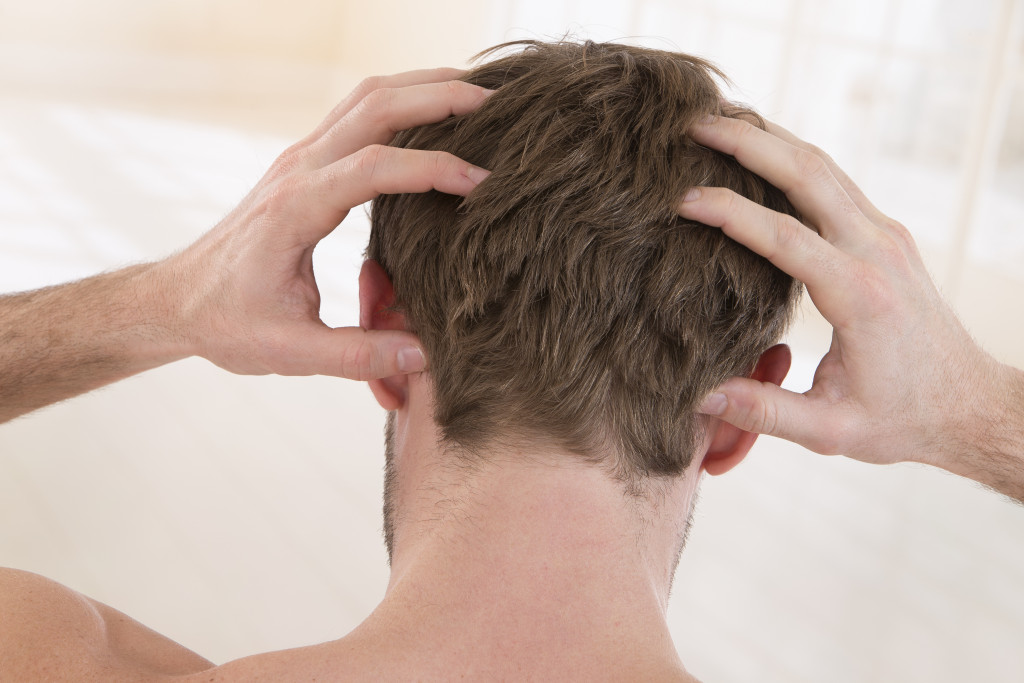- Excessive oil in hair is caused by excessive washing, hair fall, scalp irritation, dandruff, and bad smell.
- Sunflower oil can reduce oil production and balance the scalp’s natural oils.
- Eating a balanced diet rich in proteins and omega-3 fatty acids can help nourish the scalp and hair.
- Natural products such as apple cider vinegar, aloe vera gel, and baking soda should be used to cleanse the hair.
- Avoid using heat styling tools too often, brush gently with a wide-tooth comb, and don’t tug or pull at strands of hair.
Having oily hair may seem like a minor inconvenience to some, but it can be a significant problem. Oily hair is not just unsightly, but it can also lead to several other issues. From hair breakage to severe scalp irritation, oily hair can cause many problems if not addressed properly. Here’s why your hair produces oil, reasons for oily hair, and ways to deal with it.
Oil Production in Hair
Oil is a necessary part of hair care. It helps keep strands hydrated and nourished, reducing the risk of breakage and dryness. Natural oils, such as sebum, are produced by the body to lubricate and protect your scalp and hair from external elements. When too much oil is produced on the scalp, it can weigh down hair or make it look greasy.
Reasons For Excess Oil
There are a couple of reasons for excess oil in the hair. Here are some of them:

Excessive Washing
Oily hair can lead to over-washing, and this is a significant problem. As the scalp produces more oil, you may feel compelled to wash your hair more frequently. However, frequent washing can strip your hair of natural oils, leading to a dry and itchy scalp. Furthermore, you may develop hair breakage because of excessive washing. So, it is essential to wash your hair no more than thrice a week and use a gentle shampoo that won’t strip your hair of its natural oils.
Hair Fall
Oily hair can also be a major cause of hair fall. As the pores on the scalp become clogged with excess oil and dirt, it can lead to hair breakage and fall. Oily hair is more prone to tangling, which can also cause hair fall. So, make sure you take care of your hair using a detangling brush or comb and use a hair mask every week to keep your hair healthy.
Scalp Irritation
Oily hair can also lead to scalp irritation and itching. The excess oil and dirt can clog the hair follicles, leading to inflammation and redness. This can cause an itchy and irritated scalp that can be uncomfortable and embarrassing. So, keeping your scalp clean is essential, and a clarifying shampoo once a month removes any buildup.

Dandruff
Oily hair can also lead to dandruff. Dandruff is caused by a yeast called Malassezia that feeds on the oil on your scalp. This yeast can multiply when excess oil on the scalp leads to dandruff. Dandruff can cause embarrassment and discomfort, so it is essential to address it adequately. You can use an anti-dandruff shampoo that contains ketoconazole to control dandruff and keep your scalp healthy.
Bad Smell
Oily hair can also cause bad smells. As the oil on your scalp accumulates, it can cause a bad odor that can be embarrassing. This can be further compounded if you sweat excessively or don’t wash your hair regularly. So, washing your hair regularly and using a dry shampoo in between washes is important to keep your hair smelling fresh.
Prevention
Excessive oil can be prevented by caring for your hair properly. Here are four tips that can help:
Sunflower Oil
Excessive washing can be problematic for your hair. That’s why it’s better to apply oil directly on your hair when you don’t wash them. It’s good to use sunflower oil for hair as it can control its oil production. It does this by blocking the enzymes that produce sebum. So on days you don’t wash your hair, use sunflower oil instead!
Eat Healthy
Eating a balanced diet is essential for healthy hair. Foods rich in proteins are especially good for oily hair as they can help reduce oil production. Additionally, foods with omega-3 fatty acids can help nourish your scalp and hair and keep it from becoming too greasy.
Use Natural Products
Using natural products to cleanse your hair is also beneficial. Natural ingredients such as apple cider vinegar, aloe vera gel, and baking soda will remove any dirt or excess oil without stripping away the natural oils on your head. You should also avoid shampoos with harsh chemicals that may irritate your scalp.
Be Gentle With Your Hair
Finally, be gentle when brushing or combing your hair. Using a wide-tooth comb and not tugging or pulling at hair strands can help prevent breakage. Also, avoid using heat styling tools too often, as this can cause further damage to oily hair.
By following these tips, you should be able to manage your oily hair and keep it looking its best! Regular care and maintenance can reduce the amount of oil production on your scalp and keep your hair healthy and manageable. Additionally, it is essential to identify the underlying cause of excess oil production to treat it effectively. If home remedies don’t work for you, it is recommended that you visit a dermatologist for further advice.
